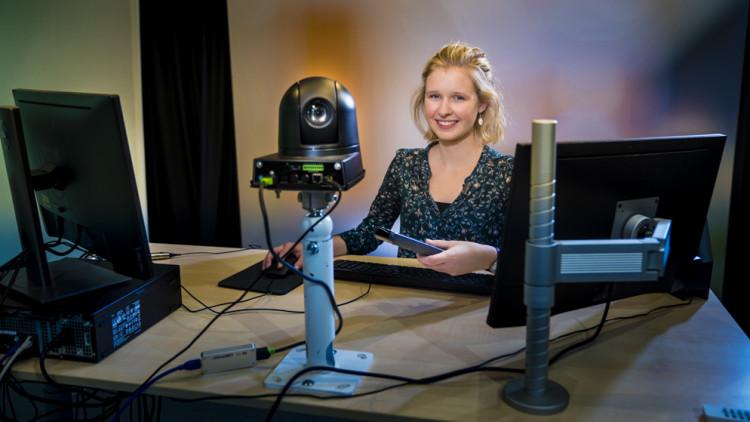Plans with basic student grant millions 'will go ahead', pandemic or not

Since the abolition of the basic student grant, in 2015, studying at a university has become thousands of euros more expensive, but students were promised that more money would be made available for universities to improve their education.For this purpose, they made ‘quality agreements’ that had to be approved by the representative councils.
At Utrecht University, the University Council agreed to these plans in March 2019. Earlier, in December 2018, UU had already agreed on four themes on which the millions would be spent: increasing the University's accessibility to create equal opportunities, small-scale and intensive education, the professionalisation of lecturers, and better guidance for students. The money that the UU receives is increasing each year. From approximately 300 euros per student per year in 2019 to 900 euros per student per year in 2024.
But then came the corona crisis, which turned the whole education system upside down. Almost everything suddenly had to be done online. What will become of those quality plans? Are they outdated now?
Improving
“From conversations with the universities and universities of applied sciences, it appears that the money for the quality agreements has been used for the switch to online education”, writes outgoing Minister of Education Ingrid Van Engelshoven in a letter to the House of Representatives. “That change was needed at an accelerated rate due to the corona pandemic”.
The minister is fine with it. “The approved plans have room to shift the available budget in order to improve the quality of online education”, she adds.
But higher education institutions don't know where the minister is getting this idea from. “In principle, the quality plans are simply being followed”, states Pieter Duisenberg, Chairman of the Association of Dutch Universities (VSNU). “Because of the corona crisis, we do incur a lot of costs, of course. But that money is not coming from the quality agreements”.
According to him, most of the quality plans can go ahead, which means hiring more teachers, having better supervision, and offering smaller-scale education. “That is also what is needed in a pandemic. But there is something going on with the funding of university education. We are 1.1 billion euros short and the funding per student is becoming ever smaller. The money from the loan system has only slowed down that decline a little”.
Quick decision
Could representative bodies such as the VSNU really have a say in discussing such adjustments? Higher education institutions say yes. “This was different at the beginning of the corona crisis", explains Karl van der Linde, of the Representative Participation Foundation, an organisation supporting the participation of students at universities of applied sciences. “Back then, the board sometimes had to make a quick decision and consultation wasn't always good”.
But plans do get modified, he believes. “Many good plans get thrown in the bin, that's our suspicion. After all, the corona crisis costs a lot of money. A demonstrable improvement in education is simply not going to happen now. The universities of applied sciences have to pull out all the stops to keep the classes going”.
The money from the basic student grant was never intended to cushion such blows, he adds. “The next minister of education will have to do something about that”.
UU's quality plans
At research universities, it sometimes seems that no money from the quality agreements should be given to the ICT department. Stijn van Uffelen, of the The National Assembly of University Parties (LOF), heard such a rumor last week. “A student from a faculty council proposed to spend part of the money from the quality agreements on ICT, but that's not allowed according to the rules, so the plan didn't go through”.
Last week, the progress report on quality funding was published on the participation website of Utrecht University (pdf accessible with Solis-ID). In this report, the various faculties and university colleges of the UU lay out how they spent the basic grant millions. The conclusion is that the faculties are largely on track with the implementation of the plans to which the faculty councils have given their blessing. Some plans have been delayed due to the pandemic, such as those related to fieldwork. The money that couldn't be spent because of the pandemic in 2020 will be added to the budget for 2021.
It is clear, however, that here and there money from the basic grant pot was used to enable the switch to online education. Often, this means an acceleration of plans that had already been made for the digitisation of education. Faculties have also invested in hiring extra lecturers or giving lecturers more working hours, allowing them to reduce the size of student groups. Student guidance has also been intensified by employing teaching assistants and strengthening the tutorage. Efforts were also made to professionalise teachers by offering them extra courses, such as English language courses.
Ministerial sources
So, the question is: where does the Ministry of Education, Culture and Science get this idea from? From “discussions” with universities and universities of applied sciences, theu say. But the ministry's spokesperson was cautious in his explanation, as the expenditure on online education will only become fully clear in the annual reports of 2020 and 2021.
According to the spokesperson, they didn't do anything wrong. “The plans are not thrown overboard with this.” Institutions have the space to bring forward certain expenditures, “appropriate to the adjusted needs of education during the corona crisis”. All shifts should, however, be well coordinated with the representative bodies and the supervisory board, he emphasises.
The corona crisis is not fun for anyone, but the ministry does see one advantage to it: institutions are gaining lot of knowledge and experience on online education, which can “also come in handy to improving the quality of education after the pandemic”.